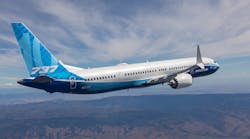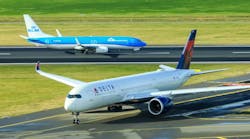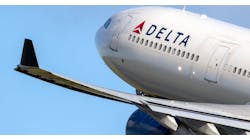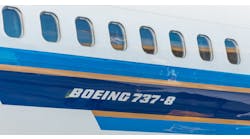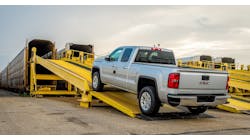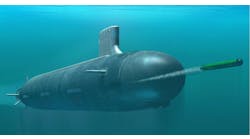Boeing is facing a December 31 deadline to gain Federal Aviation Administration certification for its next two models of the 737 MAX series – the MAX 10 and MAX 7 – unless it is granted a Congressional extension for a pending regulation. Under the federal Aircraft Certification, Safety, and Accountability Act, passed in December 2020 following FAA’s recertification of the 737 MAX program, Boeing will be required to install the Engine Indicating and Crew Alerting System (EICAS) to the flight decks in those two 737 variants.
The new requirement was among various regulatory changes implemented to strengthen FAA oversight of aircraft manufacturers after revelations that Boeing pressured inspectors to expedite their approval process, in order to speed the original certification of the 737 MAX, in 2017
Reportedly, Sen. Roger Wicker (R-Miss.), the ranking member of the Senate Commerce Committee, has proposed an amendment to the upcoming defense appropriations bill to give Boeing a 21-month (until 2024) window to complete the certification process on the MAX 10 and MAX 7 before the EICAS requirement is enforced.
Boeing is expected to argue that there is no EICAS in place on current 737 aircraft, and installing it on future MAX jets would add to the possibility of pilot confusion or errors.
Recently, the American Airlines pilots’ association publicly argued against giving an extension to Boeing, noting that pilot-alert systems are necessary to mitigate confusion or indecision during complex system malfunctions.
American Airlines operates 37 Boeing 737 MAX 8 jets, with 81 more of that model yet to be delivered.
On the other hand, Casey Murray, the head of the Southwest Airlines Pilots Assn. told Bloomberg News, “Flying two airplanes that are essentially the same but with different alerting systems can cause confusion at a critical time.” He endorsed delaying the ACSA Act requirements until Boeing and FAA had completed the 737 MAX 10 and MAX 7 certifications.
Southwest Airlines operates an all-737 fleet and is one of the largest operators of the 737 MAX series.
Having to incorporate the EICAS to the MAX 10 would be another complicating factor for Boeing, which has been manufacturing and assembling the 737 MAX 10 to fulfill nearly 900 orders already logged, and Boeing had been expected to begin deliveries of the MAX 10 during 2023. However, the possibility of seeking an extension to avoid the ACSA Act requirements began to be discussed as early as March 2022.
Last month it was reported that FAA had advised Boeing that less than 10% of the OEM’s safety assessments on the MAX 10 had been approved, while 70% were being reviewed or revised. In some details, Boeing had not yet delivered FAA’s required documentation. According to an Associated Press report, an FAA official wrote to Boeing, “Many of these documents will take significant time to review due to their complexity and bearing on the overall safety of the new aircraft.”
The 737 MAX 10 will be the largest of Boeing’s narrow-body, 737 MAX series, carrying a maximum of 230 passengers and having a maximum range of 3,300 nautical miles. Boeing has logged over 850 orders for the MAX 10, including from major carriers like United Airlines and Delta Air Lines.
“The 737-10 will be a game changer, with one of the lowest costs per seat among mid-range aircraft," according to Alexis von Hoensbroech, WestJet Group CEO, whose Calgary-based low-cost airline recently placed a contract for 42 737 MAX 10 aircraft, an order that could be worth up to $5.67 billion at list prices.
The smaller, 737 MAX 7 will seat 153-178 passengers and have a maximum range of 3,850 nautical miles. Boeing has booked 286 orders for the 737 MAX 7, 234 of which are from Southwest Airlines and the remaining 22 from WestJet. The 737 MAX 7 had been expected to begin commercial service during 2022, and although some of the aircraft have been spotted conducting test flights, the date of readiness is unknown.
